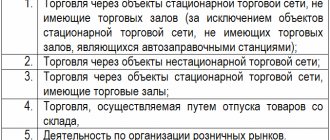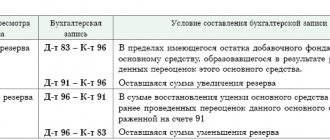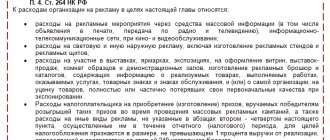Grouping of expenses according to law
The main document defining how expenses should be formed in a commercial structure is PBU 10/99.
According to clause 5 of this legal regulation, material costs are associated with the implementation of the main activity. All expenses incurred by the organization can be divided:
- for expenses for ordinary activities;
- other expenses.
For proper accounting, it is necessary to ensure the grouping of all costs incurred in accordance with their economic content. According to clause 8 of PBU 10/99, material costs are included in the enterprise’s costs for ordinary activities, which also include wages, contributions to social funds, depreciation and other costs.
This legislative act does not provide a clear list of material expenses. The company determines the content of each article itself, taking into account the specifics of its work aimed at making a profit. To fully analyze information about the results of work, it is necessary to take into account all expenses incurred.
From 2022, the accounting of material expenses must be guided, among other things, by the new FSBU 5/2019 “Inventories”. Find out what has changed with the adoption of the new standard from the Ready-made solution from ConsultantPlus. Trial access to the legal system is free.
The costs of an enterprise in accounting are included in the cost of production and participate in the formation of the financial results of the reporting period to which they relate.
By what principles are costs grouped in accounting, read the article “List of the most frequently used cost items in accounting.”
Recognition of expenses
The date of recognition of material expenses in the tax base depends on the tax accounting method used by the organization. When using the accrual method, expenses are recognized in the period to which they relate (clause 1, article 272 of the Tax Code of the Russian Federation). The dates of recognition of material expenses when using the accrual method are shown in the table. With the cash method, expenses can be taken into account only after they have actually been paid (clause 3 of Article 273 of the Tax Code of the Russian Federation). The dates of recognition of material expenses when applying the cash method are shown in the table.
When calculating income tax, recognize a number of material expenses in a special manner. Thus, the purchase price of raw materials and materials can be written off as expenses only in the part released into production and used in it at the end of the month (clause 5 of Article 254 of the Tax Code of the Russian Federation). Include (begin to include) the cost of non-depreciable property in expenses only after commissioning (subclause 3, clause 1, article 254 of the Tax Code of the Russian Federation).
In addition, when applying the accrual method, the organization can attribute part of the material costs to direct costs (clause 1 of Article 318 of the Tax Code of the Russian Federation). In this case, take into account the cost of materials in expenses as you sell the products for the production of which they were used (clause 2 of Article 318 of the Tax Code of the Russian Federation). If an organization provides services, then direct costs, as well as indirect ones, can be taken into account at the time of their accrual (paragraph 3, paragraph 2, article 318 of the Tax Code of the Russian Federation).
Situation: when calculating income tax, is it possible to recognize the costs of paying for utility services of the previous period if the documents confirming these costs are received by the organization late? The organization uses the accrual method.
Yes, you can.
When calculating income tax, you can recognize any expenses that meet the criteria established by paragraph 1 of Article 252 of the Tax Code of the Russian Federation. One of these criteria is documentation of costs. Documents confirming the costs of paying for utility services can be acts, invoices, universal transfer documents issued by resource supply organizations, etc.
As a general rule, expenses must be taken into account in the period to which they relate (Clause 1, Article 272 of the Tax Code of the Russian Federation). But what if the documents confirming the provision of utility services were received by the organization late and the accountant has already reported on income tax?
In this case, the declaration is unreliable. Usually, in order to correct an error, you need to submit an updated declaration to the inspectorate. However, there are cases when it is not necessary to draw up an updated declaration. In particular, if an error resulted in an excessive payment of tax, filing an amended return is the right, and not the obligation, of the organization. Such an error can be corrected in the current period, that is, in the month when the supporting documents were received by the organization. This month you need to include the cost of utility services provided as expenses.
Important: if a loss was reflected in the initial declaration, the amount of late confirmed utility expenses cannot be taken into account in the current period. Such an error does not entail excessive payment of tax, so the organization will have to file an amended return, reflecting the increased amount of expenses and the new amount of loss.
This follows from the provisions of paragraph 3 of paragraph 1 of Article 54, paragraph 2 of paragraph 1 of Article 81 of the Tax Code of the Russian Federation. Similar clarifications are contained in letters of the Ministry of Finance of Russia dated January 23, 2012 No. 03-03-06/1/24, dated August 25, 2011 No. 03-03-10/82, dated April 23, 2010 No. 03-02-07 /1-118 and the Federal Tax Service of Russia dated March 11, 2011 No. KE-4-3/3807.
If the documents were received next month, but before the deadline for submitting the declaration, nothing will need to be clarified. Prepare the declaration taking into account the expenses confirmed by these documents. Such clarifications are in the letter of the Ministry of Finance of Russia dated July 27, 2015 No. 03-03-05/42971.
Advice : if documents confirming utility expenses are systematically received late, they can be taken into account as received, without submitting updated declarations. But such a procedure must be provided for in the accounting policy for tax purposes.
As a rule, settlements with resource supply organizations are made monthly. Since utility bills are semi-fixed expenses, the period in which the organization includes them in the calculation of income tax is not of fundamental importance. To avoid constant adjustment of tax liabilities for past periods, the accounting policy for tax purposes should indicate: “periodic expenses for utility services reduce the tax base in the period in which documents confirming their cost are received from the resource supplying organization, but no later than month". If such a record is available, costs for late received documents can be taken into account with a month shift.
Similar explanations were previously given by the Russian Ministry of Finance (letters dated September 6, 2007 No. 03-03-06/1/647 and dated February 22, 2007 No. 03-03-06/1/123).
Material expenses in tax accounting
A significant part of the costs in the economic activity of an enterprise is material costs. The amount of income tax depends on their correct accounting. To form the tax base, it is necessary to use the Tax Code, according to which not all costs incurred can be included in expenses.
In tax legislation, expenses are recognized as economically justified (aimed at making a profit) and documented (documented in accordance with the law) expenses incurred by the taxpayer. They share:
- for the costs of production and sales of products;
- non-operating expenses.
Material costs are included in the group associated with production and sales and are described in detail in Art. 254 Tax Code. These include everything that has a material and monetary characteristic, is used in the production of products and the provision of services, as well as all costs aimed at sales: packaging, transportation, storage, etc.
When writing off materials and raw materials into the cost of production, an enterprise has the right to independently choose and apply one of the methods (clause 8 of Article 254 of the Tax Code of the Russian Federation):
- at the cost of receipt of the unit;
- at average cost;
- according to the FIFO method - write-off according to the order of arrival.
The methods for applying these assessment methods are similar to those used in accounting and are provided for in clause 36 of FSBU 5/2019.
Methods for evaluating materials when they are written off are described in detail and with examples in the Ready-made solution from ConsultantPlus. Get trial access to the system for free and proceed to the material.
Commentary on Article 254 of the Tax Code of the Russian Federation
In Art. 254 of the Tax Code of the Russian Federation provides a list of material expenses. These include purchase costs:
— raw materials and supplies necessary for the production of products (performance of work, provision of services);
— materials for packaging, pre-sale preparation of manufactured and sold goods, as well as for household needs;
— tools, fixtures, equipment, instruments, laboratory equipment, workwear and other personal and collective protective equipment, as well as other property that is not depreciable;
— components undergoing installation and (or) semi-finished products undergoing additional processing at the taxpayer’s place;
- fuel, water and energy of all types spent on technological purposes, production (including by the taxpayer himself for production needs) of all types of energy, heating of buildings, as well as costs for transformation and transmission of energy;
- works and services of a production nature performed by third-party organizations or individual entrepreneurs, as well as for the performance of these works (provision of services) by structural divisions of the taxpayer.
As well as costs associated with the maintenance and operation of fixed assets and other environmental property.
Valuation of inventory items
Clause 2 of Art. 254 of the Tax Code of the Russian Federation determines: the cost of inventory items, which are included in material costs, is determined by organizations based on the prices of their acquisition. This also includes intermediary commissions, import customs duties and fees, transportation, storage costs, as well as other costs associated with the acquisition of inventory items.
For goods purchased for resale, they are valued based on the purchase price. Their price can include any costs associated with their purchase, in particular the cost of delivery.
Please note: since 2006, the cost of inventory items must include any taxes and fees that were paid upon their purchase or production. The only exceptions are VAT and excise taxes, which can be deducted.
At the same time, customs duties and fees must be included in other expenses. This is what the updated version of paragraph says. 1 clause 1 art. 264 of the Tax Code of the Russian Federation (this norm can be applied from January 1, 2005). The exception is customs payments for imported goods, materials and fixed assets. They can be included in the cost of the specified property. In this case, the choice remains with the taxpayer (clause 4 of Article 252 of the Tax Code of the Russian Federation).
As for the methods for assessing raw materials and materials that are written off for production, they are listed in clause 6 of Art. 254 Tax Code of the Russian Federation. Just as in accounting, organizations, when writing off raw materials and materials for production, must estimate at cost:
- each unit;
— the first acquisitions (FIFO method);
— recent acquisitions (LIFO method);
- at average cost.
The chosen method must be indicated in the order on the organization’s accounting policy for tax purposes.
Natural loss rates
Shortages and losses from damage to material assets can be taken into account when calculating income tax based on paragraphs. 2 clause 7 art. 254 Tax Code of the Russian Federation. But such expenses are written off only within the limits of natural loss.
The procedure in which these norms should be approved is authorized to be developed by the Government of the Russian Federation. In turn, the Government of the Russian Federation instructed industry departments to develop spending standards and coordinate them with the Ministry of Economic Development and Trade of the Russian Federation (Resolution of the Government of the Russian Federation of November 12, 2002 N 814). However, to date, standards have been approved only for a few types of products. Therefore, legislators decided that organizations can apply the norms of natural loss approved before the introduction of Ch. 25 Tax Code of the Russian Federation. The corresponding amendments were made by Federal Law of June 6, 2005 N 58-FZ. Moreover, this change is retroactive and applies to the period from 2002.
That is, organizations that did not write off losses in previous tax periods have the right to now recalculate the tax and return the overpayment.
Results
An enterprise has the right to make expenses necessary for its activities, which will significantly reduce the actual profit, but not all expenses can be taken into account to determine the tax base.
To properly differentiate them, the accepted accounting methods must be reflected in the accounting policies. You can find more complete information on the topic in ConsultantPlus. Free trial access to the system for 2 days.





